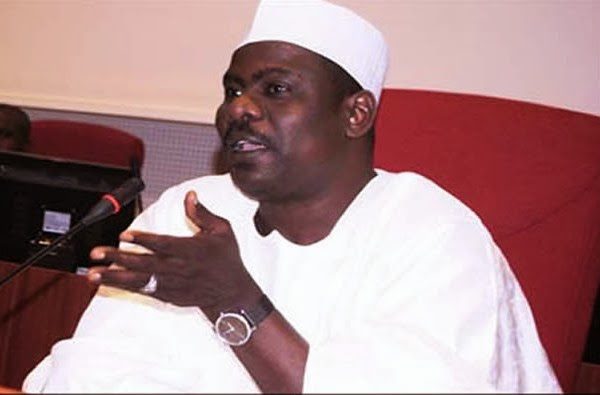Global Issues
Toxic Or Healthy Relationship? Being Apologetic, And Saying “I’m Sorry” Makes The Difference! -By Sandra Ijeoma Okoye
The apology is admitting the wrong, but it also claims the need for change. Change is hard. Change is also exciting as new patterns and ways of relating are born. We were created to change and transform day-by-day. Thus, by each passing day we embrace the new, and give up the old.

There is no denying the fact that a relationship is the state of being connected to another person, place, or thing. There are relationships amongst almost everything in our environment.
However, the type of relationship that concerns this writer in this context is the relationships between people. The relationship between a mother and daughter, father and son, brother and sister, schoolmates, co-workers, professional colleagues, and so on and so forth.
Against the foregoing backdrop, it can be said that just the way engineers are wont to pass the instruction that the best form of “health insurance” that can be given to a car is clean lubrication on a regular basis, this writer is in a similar vein saying that saying “I’m Sorry” in any kind of relationship works like magic even as it shows someone’s character and turns toxic relationship to a healthy one.
Analyzed from the foregoing backdrop, it is expedient to say that people in any kind of relationship make mistakes. It is almost impossible to relate with one another without making mistake, as mistakes are natural part of daily interaction between two friends or colleagues that are in a relationship. The relationship may not be necessarily romantic in nature as people, being social beings, must always interact at any given time as no man is an island. But when your mistake hurts your friend, how do you respond?
The reason for the foregoing question cannot be farfetched as it is inexorable to make mistake in a relationship. Inasmuch as we all want and strive to have healthy, balanced, and positive relationships it is not always healthy at all times. There are times when disagreements and frozen relationship creep in. And although some relationships may evolve more naturally than others, they all require hard work. One successful way that partners can work towards building a healthy and lasting bond is through mutual relationship.
The first step to take in remedying a relationship that is about to become toxic or has already turn out to be so, no doubt, is by tendering a straight-from-the-heart-kind-of apology as it will go a long way in restoring the relationship. This is true for significant friendly mistakes, but also true for those in romantic relationship who, for example, are yet to understand each other as the building of relationship is an ongoing process; it is never an ending interactive process, however, it is better to say “I’m sorry” early enough if you are having misunderstanding in relationship, rather than waiting for the situation to get worse, and go out of hand.
When feelings have been hurt or injuries have been caused, you cannot assume that you have the injured person’s consideration or approval just because you feel both of you use to consider whatever word that might have been uttered to be a joke. Mind you, he or she might not always be a convivial mood to accept the joke. In personal situations, a simple “I’m so sorry,” as earlier noted may do the trick. But don’t be surprised if you have to go out of your way to make sure you are heard. In fact when apologizing by saying “I’m sorry”, do it sincerely; from deep down your heart, in a way designed to be heard by those who have been wronged. Say you’re sorry, and say it clearly. Starting with a simple and direct, “I’m sorry,” is usually the best. Anything else isn’t a true apology. . Explain why you were wrong. We’ve all heard apologies that start with, “I apologize for the inconvenience …” The speaker is not stating a regret for her own behavior, but only that you were inconvenienced along the way.
Always endeavor to show your sincerity when saying I’m sorry. Never take the offended for granted by repeating what will always make you to say “I’m sorry”. The words or rather phrase will always paved the way for tender and sincere apology in a way that reflects how you truly feel, and admitting your faults is the crucial first step towards making things right once again.
Without any iota of exaggeration, “I’m sorry”, is possibly two of the most powerful words in the English language. Yet, these words are often avoided and easily choked on! Why do we struggle to say these two simple words? “I’m sorry”. The words are so powerful that they can automatically restore relationships. “I’m sorry” swings open the way to forgiveness and grace. “I’m sorry” releases the power of our mistake and grants freedom.
We avoid these two powerful words because we don’t look to the end result. Instead we look to the immediate future and tremble with fear. We grasp on to pride and point to the other person. Stubbornly, we cross our arms refusing to take responsibility. We say no to making a change and transforming. Without doubt, saying nothing leads to increased hurt and hardened hearts.
Against the foregoing backdrop, not few readers of this piece would be tempted to ask, “If ‘I’m sorry’ is that effective in mending relationship, why do people avoid it”? The reason for avoiding it by most people cannot be farfetched in this context as three reasons that make people avoid saying “I’m Sorry” are fear, pride and taking responsibility.
For instance, as regard the fear factor, saying “I’m sorry” can be scary. We become scared of what others might think. We fear rejection, judgment and conflict. We often think simply avoiding an apology makes the whole thing disappear faster. We may even wonder if the other person even noticed our mistake (they did, by the way). Fear cripples us. Fear keeps us stagnant rather than moving forward.
In a similar vein, pride keeps us from taking responsibility. Our focus becomes what the other person did to contribute to the problem. We buy into the lie that the mistake made by anyone that offended us was bigger. Then we wait, tight-lipped, demanding an apology. We have to remember that we all fall short and make mistakes. Hanging onto pride only further hardens hearts.
In fact, for those in the Christendom, the refusal to apologize which is the third contributory factor on why people refuse saying “I’m sorry” is the same as refusing grace and forgiveness. It is essentially saying, “I don’t need grace and forgiveness”. The apology is admitting the wrong, but it also claims the need for change. Change is hard. Change is also exciting as new patterns and ways of relating are born. We were created to change and transform day-by-day. Thus, by each passing day we embrace the new, and give up the old.
Be that as it may, we should not forget that there is a big Pay Off by saying “I’m Sorry” as it makes relationships to be restored. In fact, hurtful situations are resolved by saying “I’m sorry” even as it also removes bitterness and hardened hearts. As generally known, forgiveness replaces bitterness. It allows grace to flow freely and do its work thereby reducing conflict.




















